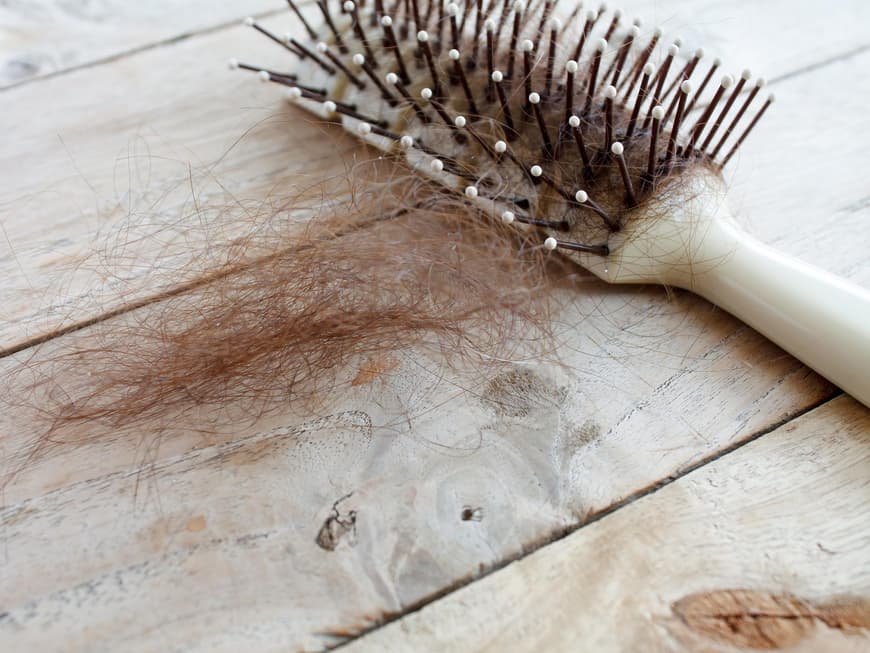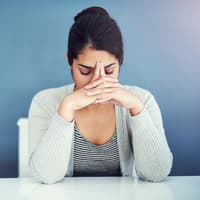
Stress-related or not? Hair loss can have many causes
Hair loss can have different causes and manifest itself in different ways. Hereditary hair loss often leads to classic baldness. Circular hair loss, on the other hand, which can only affect areas of the scalp, is often a symptom of an autoimmune disease. If the hair on the head generally becomes thinner, experts speak of diffuse hair loss. Possible causes: an altered hormone balance at the start of the menopause, intolerance to certain medications, thyroid dysfunction or nutrient deficiency. However, diffuse hair loss also occurs as a result of stress. Experts suspect that prolonged psychological stress increases the concentration of certain messenger substances. As a result, inflammation is triggered in the hair follicles, which stops hair growth prematurely. The hair root ceases to function and after around two to three months the hair falls out completely.
Hair loss due to stress: what to do?
While doctors treat circular and diffuse hair loss due to physical causes with appropriate active ingredients, other remedies are needed for hair loss due to stress. The good thing about hair loss caused by stress: when the stress subsides, the hair grows again.
This requires successful stress management . Which coping strategy helps to stop hair loss due to stress depends on individual needs and preferences. For some, a little more free time can bring about improvement. Others use certain relaxation techniques and need effective time management to get stress and therefore stress-related hair loss under control.
A healthy lifestyle also helps to manage stress. Sufficient sleep and a balanced diet with hair growth-promoting nutrients such as zinc are sometimes enough.
Even if stress is not the original trigger for hair loss, hair loss can in turn trigger stress - which in turn increases hair loss. The result is a vicious circle. Then there is supposedly nothing that helps against hair loss caused by stress. Even stress reduction is not successful? The hair loss may be a sign that the body is missing something and that there is a metabolic disorder, for example. Important: take any warning signs seriously and have all physical causes ruled out. Only then can measures against mental overload take effect - and hair loss due to stress can be successfully contained.






